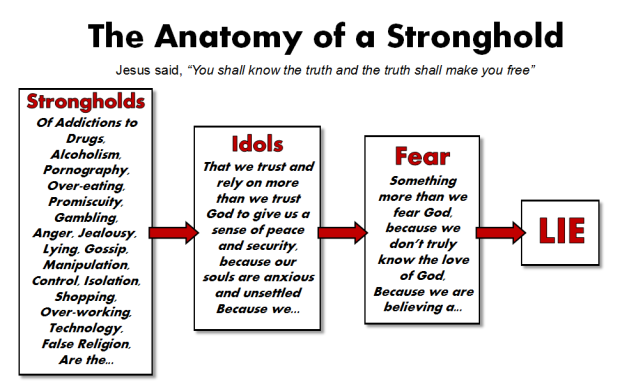 What in the world is going on with believers who no longer go to church? The easy answer is they are backslidden and selfishly living for themselves instead of for Christ. But could there be other reasons? Some researchers speculate that as many as 20 to 30 million believers no longer attend church regularly. There is a rising consensus that the Church may be going through a reformation in the way we do church in America. They are less certain as to what this change will look like in the years to come. After 30 years of ministry I have noticed that many formerly active, “mature” Christians are no longer involved in a local church. I recognize “mature” may be a misleading term, but I am referring to those who were once highly involved, in love with Jesus believers. Many of these believers are some of the finest Christians I know. They just don’t go to a traditional church anymore.
What in the world is going on with believers who no longer go to church? The easy answer is they are backslidden and selfishly living for themselves instead of for Christ. But could there be other reasons? Some researchers speculate that as many as 20 to 30 million believers no longer attend church regularly. There is a rising consensus that the Church may be going through a reformation in the way we do church in America. They are less certain as to what this change will look like in the years to come. After 30 years of ministry I have noticed that many formerly active, “mature” Christians are no longer involved in a local church. I recognize “mature” may be a misleading term, but I am referring to those who were once highly involved, in love with Jesus believers. Many of these believers are some of the finest Christians I know. They just don’t go to a traditional church anymore.
Recently, we have seen believers de-converting because of progressive arguments that may seem new, but are actually old lies that have been repackaged. Jesus Himself said, that a certain percentage of people would drop out because of tribulation, persecution, and the deceitfulness of riches. Some believers evidently had the wrong idea that the Christian life was supposed to be easier. I am also not referring to the 12 Reasons Why Millennials Have Dropped Out of Church after High School or College. Nor is this about the people who left the Church because someone hurt their feelings, the music was too loud or they didn’t like the pastor’s wife. Something much deeper is going on. This is a conversation I hope others will add to. Why have “mature” believers stopped being part of a church community? See if any of these reasons resonates with you.
1. They Outgrow Their Childhood Fear of God (Judgement). They no longer are afraid of the “boogie-man” of the fear of God’s judgment. As adults, they have outgrown the fear of being sent to hell for not attending church services or prayer meetings, paying their tithes, or being involved in their local church programs. Some believers were so driven by the fear of man or the fear of God that they only attended church out of obligation instead of love. They also no longer fear the warning from Jesus about being spit out of His mouth for being lukewarm because they see so many other believers who still love God without church involvement (Revelations 3:16). Once they realized that God loves and accepts them regardless of their performance, they see no reason to submit to church life and the control they felt while attending. Some of this reaction may be a legitimate response to controlling leadership. For more on this read “23 Ways Leadership Dominates Their People”.
the “boogie-man” of the fear of God’s judgment. As adults, they have outgrown the fear of being sent to hell for not attending church services or prayer meetings, paying their tithes, or being involved in their local church programs. Some believers were so driven by the fear of man or the fear of God that they only attended church out of obligation instead of love. They also no longer fear the warning from Jesus about being spit out of His mouth for being lukewarm because they see so many other believers who still love God without church involvement (Revelations 3:16). Once they realized that God loves and accepts them regardless of their performance, they see no reason to submit to church life and the control they felt while attending. Some of this reaction may be a legitimate response to controlling leadership. For more on this read “23 Ways Leadership Dominates Their People”.
2. They No Longer See the Need for a Spiritual Parent. They no longer feel the need for  someone to tell them what to do. When they were children or new believers they were dependent on an adult, or a leader to teach them everything about life and the Bible. Spiritual leaders tell the young or new converts the difference between right and wrong, good and evil, the clean and unclean. This is all new information to the new believer or developing child. There is a great reliance on somebody else’s spiritual life until they develop their own. This explains why most growing churches are full of young people and new converts. As Christians get older they may begin to resent the unspoken expectations to conform to the group. Even though you may have loved your parents and home life, the desire for independence causes many to leave the environment that raised them. Sometimes we are looking for a different kind of leader than the one the Lord used to help us in the beginning of our walk. For more on this see “UnChurching – The Modern Church Dilemma”.
someone to tell them what to do. When they were children or new believers they were dependent on an adult, or a leader to teach them everything about life and the Bible. Spiritual leaders tell the young or new converts the difference between right and wrong, good and evil, the clean and unclean. This is all new information to the new believer or developing child. There is a great reliance on somebody else’s spiritual life until they develop their own. This explains why most growing churches are full of young people and new converts. As Christians get older they may begin to resent the unspoken expectations to conform to the group. Even though you may have loved your parents and home life, the desire for independence causes many to leave the environment that raised them. Sometimes we are looking for a different kind of leader than the one the Lord used to help us in the beginning of our walk. For more on this see “UnChurching – The Modern Church Dilemma”.
3. They Feel Institutional Church can be Wasteful and Contrived. Although most believers are aware of the biblical admonition to “not forsake assembling together”, many feel the Sunday morning assembly no longer resembles what the scriptures intended. For some, the idea of creating a corporation and calling it a church seems foreign to the Bible. As time passes, some older believers start to question the church they are a part of, and imagine a church of their preferences. They may begin to ask if all money spent at church is worth the effort. They see buildings that are not fully used. They see the cost of advertising, the staff and man-hours and energy needed to produce the Sunday program, and wonder if they are truly impacting the community. Furthermore, with only 4% of the population with a biblical world view, one wonders how we’ve lost a generation using all these state of the art facilities, satellites, TV and Radio shows, sound systems, video projectors, fog machines, and lighting systems.
Some start to recognize that even though there is plenty of activities in churches, the relationships can be superficial. After a while it can all feel forced and unnatural. What  started out with inspiration can become a ministry machine that wants to be fed. They feel it is more of a business than an actual family of believers. It is important to remember, we often don’t express these concerns about how much money and man-hours it costs to run our schools, our police and fire departments, our hospitals, and businesses. Are those endeavors more important than the mission of the Church?
started out with inspiration can become a ministry machine that wants to be fed. They feel it is more of a business than an actual family of believers. It is important to remember, we often don’t express these concerns about how much money and man-hours it costs to run our schools, our police and fire departments, our hospitals, and businesses. Are those endeavors more important than the mission of the Church?
Yet church can sometimes feel like everyone is there to build the leader’s “kingdom”… in Jesus name. God led Israel into Egypt to be a place of provision, but it later became a place of slavery. Some have noted that their early church experience was a beautiful “mothering” place, but later it became a bothersome “smothering” place. Some kingdom-minded believers even go as far as to say the current church model is detrimental to authentic Christian living. Today this aversion to “institutional church” is so pronounced, that the first thing believers often say when getting together with other believers, is to say this gathering is emphatically not a church.
4.They are Embarrassed of Their Past Service or Their Present Sin. Some believers upon reflecting upon the way they lived their Christian life may have realized they were judgmental of other believers, because they were too performance driven and hard on themselves and others. They may have been unaware that their great commitment to the work of God, was because they had an angry image of God and an inner need to gain His approval. Some of the most faithful church workers over the last 20 years no longer serve in the local church because they are ashamed of the way they scolded other believers for not being more involved at church. Now that they have run out of energy themselves, they have discovered that their zeal for God was more about a personal quest for validation than following the leading of the Holy Spirit. Just as we are embarrassed at old pictures of us wearing outdated cloths, we wonder why nobody told us we were wearing unfashionable motives, attitudes, and actions at church.
Perhaps nothing embarrasses us and humbles us more than finding ourselves involved in a sin, especially for veteran believers. Countless faithful Christians who taught Sunday School classes, small groups, went on mission trips or who were in some level of leadership, have found themselves in all kinds of sinful situations. This makes them feel even more ashamed because they confidently taught the Bible to others. The performance based relationship that drives most believers in their early years also leaves them vulnerable to sin. The same flesh that drives us to perform for approval is the same flesh that wants to satisfy other appetites as well. Sadly, their immature relationship with the Lord that allowed them to stumble into sin also clouds their vision to see how to go deeper to correctly apply God’s grace to their current situation. The enemy robs them of the opportunity to turn their mess into a message about Christ’s faithfulness that could help others.
5. They are Dealing with Their Inner-life Stuff. Many “mature” believers find themselves wrestling with the mid-life crisis, finding their identity after the kids leave home, career changes, dormant illicit sexual desires, divorce, covetousness, uncontrollable need to people please, financial problems etc. The universal “father wound” which produces a performance-based identity inevitably wears us out. Believers are simply worn out from navigating the minefield of interpersonal relationship conflicts at home, church, or work. These conflicts magnify unconscious painful childhood  memories and dysfunction. This stuff all comes to surface as you get older. We simply run out of energy trying to pretend everything is all right through our external activities. We are no longer capable of holding down the proverbial “beach ball” of our dysfunction under the water. Sunday morning sermons designed for the seekers seem insufficient to address the inner life issues percolating from within. Many slip away into isolation because they don’t think their church has any answers to what they are experiencing. The enemy lies to these believers by suggesting there is something wrong or different about them… that they just don’t have what it takes to live the Christian life. These issues should change our focus from church programs and draw us closer to Christ’s person. What they don’t realize is that they are just like everyone else. They need to allow the life of Christ to go deeper. They also need to go deeper in their relationship with others. This is the worst time to not be part of a healthy community.
memories and dysfunction. This stuff all comes to surface as you get older. We simply run out of energy trying to pretend everything is all right through our external activities. We are no longer capable of holding down the proverbial “beach ball” of our dysfunction under the water. Sunday morning sermons designed for the seekers seem insufficient to address the inner life issues percolating from within. Many slip away into isolation because they don’t think their church has any answers to what they are experiencing. The enemy lies to these believers by suggesting there is something wrong or different about them… that they just don’t have what it takes to live the Christian life. These issues should change our focus from church programs and draw us closer to Christ’s person. What they don’t realize is that they are just like everyone else. They need to allow the life of Christ to go deeper. They also need to go deeper in their relationship with others. This is the worst time to not be part of a healthy community.
6. They Don’t Have a Biblical World View. This may be the biggest misunderstanding of disconnected believers today. American believers have an individualistic, independent mindset that comes from our high value of privatized, individual rights in our western democracy. But this is a foreign concept to the Bible. There are over 30 “one another” commands in Scriptures that can only be obeyed if we part of a community of believers. They forget that right believing and right behaving includes right belonging as well. Knowing God, being discipled, learning spirituality, finding your Christian vocation, all occur in community, for the purpose of the community. There is really no such thing as Jesus being your “personal” Savior. He is your Savior because He has adopted you and brought you into the Family of God, into the Body of Christ. Jesus isn’t coming back for a harem, He’s coming for a Bride. We get the personal benefits only because we are part of the whole. That’s why a kidney, a liver or lungs will die outside the body. Disconnecting from His Body often disconnects us from Him, Who is the Head. Jesus is one with His Body. What kind of community we belong to is another discussion. Remembering the 7 Fundamental Disciplines of a Disciple of Jesus will help us know what to do next.
the biggest misunderstanding of disconnected believers today. American believers have an individualistic, independent mindset that comes from our high value of privatized, individual rights in our western democracy. But this is a foreign concept to the Bible. There are over 30 “one another” commands in Scriptures that can only be obeyed if we part of a community of believers. They forget that right believing and right behaving includes right belonging as well. Knowing God, being discipled, learning spirituality, finding your Christian vocation, all occur in community, for the purpose of the community. There is really no such thing as Jesus being your “personal” Savior. He is your Savior because He has adopted you and brought you into the Family of God, into the Body of Christ. Jesus isn’t coming back for a harem, He’s coming for a Bride. We get the personal benefits only because we are part of the whole. That’s why a kidney, a liver or lungs will die outside the body. Disconnecting from His Body often disconnects us from Him, Who is the Head. Jesus is one with His Body. What kind of community we belong to is another discussion. Remembering the 7 Fundamental Disciplines of a Disciple of Jesus will help us know what to do next.
7. They are Confused About the Grace Message. The last 20 years has produced a tidal wave of grace teaching. This teaching emphasis affects just about every sermon, worship song, Radio and TV program and Church name in the West. The Gospel of Grace has ![GraceWood[1].jpg](https://jeffkrall.files.wordpress.com/2017/02/gracewood1.jpg?w=210&h=118) revealed just how much God really does loves us. It reminds us that the death, burial and resurrection of Jesus has done away with three things central to the Old Covenant; The need for a sacrifice (Jesus is our sacrifice), the need for a temple (we are the temple of God) and the need for a priest or mediator to God (Jesus is our High Priest). This has removed the “have to” of church attendance for many. This leaves some believers questioning the need or purpose of organized church other than teaching new believers or children during their formative years. For more on the topic of the Grace Message you may want to read; “In The Year 2023 – The Gospel of Grace Meets the Gospel of Repentance”.
revealed just how much God really does loves us. It reminds us that the death, burial and resurrection of Jesus has done away with three things central to the Old Covenant; The need for a sacrifice (Jesus is our sacrifice), the need for a temple (we are the temple of God) and the need for a priest or mediator to God (Jesus is our High Priest). This has removed the “have to” of church attendance for many. This leaves some believers questioning the need or purpose of organized church other than teaching new believers or children during their formative years. For more on the topic of the Grace Message you may want to read; “In The Year 2023 – The Gospel of Grace Meets the Gospel of Repentance”.
8. They Already Receive from 3-5 Ministers a Week. Gone are the days when you and your family went to one of the few churches in your town. Back when there were only  three channels on TV and no internet or cell phones, the activities at your local church was sufficient to get your attention and attendance. Today the typical believer receives from between 3 and 5 of their favorite ministers or Bible teachers through TV, Radio, and Social Media. All this head knowledge leaves many believers, especially those who are struggle with interpersonal relationships, eager to avoid the whole church community scene.
three channels on TV and no internet or cell phones, the activities at your local church was sufficient to get your attention and attendance. Today the typical believer receives from between 3 and 5 of their favorite ministers or Bible teachers through TV, Radio, and Social Media. All this head knowledge leaves many believers, especially those who are struggle with interpersonal relationships, eager to avoid the whole church community scene.
9. They are Confused by New Doctrines. Sitting in a church service designed for the unsaved or new believers year after year can result in older believers’ attention drifting because of the predictable routine of the ministry machine. For those whose hearts don’t grow cold, a search for answers for life’s deeper questions will ensue. If their church doesn’t have mature leaders or small groups that can address their questions, they will inevitably look elsewhere. They may listen to different ministers or read different authors from different theological camps from their denomination or tribe. This can be exhilarating as well as disconcerting as they wonder why their “first teachers” didn’t bring this information up in the first place. Admittedly our first parental, spiritual leaders are more focused on giving us “roots” by rehearsing foundational doctrines, than they are with giving us “wings” to understand broader theological and philosophical issues. Like when our children go off to college and have professors tell them they have been brainwashed by ignorant parents, these believers can doubt everything they were taught if they read these new things without discernment.
This phase of Christian life is vital to moving onto personal maturity but it is also fraught with many dangers. Chief among them is the original demonic assault on the mind of Man in the garden. This is where Satan strategically attacked Adam and Eve by posing his deadly question; “Did God really say…”? This resulted in them disobeying God and eating from the Tree of “Knowledge” resulting in death. Today the believer is confronted with all kinds of “knowledge” questions concerning the infallibility of Scripture, the conflict between the Jesus of the New Testament and the God of the Old Testament, theories of the atonement, eschatology, and the eternal state of the soul. In this valley of decision many believers succumb to the wolves in the valley and fall away from a vital Christian community simply because the enemy has successfully sowed the seeds of doubt about almost everything God has said in Scripture. This is similar to the way Solomon drifted away from the Lord, because of the seduction of so many religious points of view from his many lovers. The only solution for them is to crucify the flesh at the “place of the skull” like Jesus, and have a fresh encounter with Holy Spirit, Who is our Teacher. In 1 John 1:7 the Words states, If we walk in the light as He is in the light we will have fellowship with one another. Our connection to a group of believers makes it pretty clear whether or not we are walking in knowledge or walking in His light.
10. They Struggle Getting along with People Without a “Leader” Around. Now that some believers have broken away from their church, they find it difficult to fit in any where else. There is a lot of talk from believers who are critical of the institutional church wanting authentic relationships, but the evidence seems to contradict them, because when they disengage from the ministry machine they criticize, they often wander into isolation, instead of deeper fellowship. Those who have disconnected from a traditional church community may be unaware their current isolation could be connected to their relational immaturity. When believers are in the institutional church model there is a kind of “forced” unity, like  you had when you were a kid growing up in your parent’s home. In other words, because everyone in the house or community is submitting to a ministry leader (the parent) it appears as if everyone is getting along, at least externally during the 90 minutes of the church service.
you had when you were a kid growing up in your parent’s home. In other words, because everyone in the house or community is submitting to a ministry leader (the parent) it appears as if everyone is getting along, at least externally during the 90 minutes of the church service.
But what happens when millions of believers feel they have outgrown church and stop being part of a Christian community, where there is no recognized headship, no rank or order? For many believers they find they don’t have the conflict resolutions skills or the grace to get along with different personalities and maturity levels in other people. They take for granite how much their spiritual parents kept so many different people together in one house without them killing each other. Here is where the isolated believer often realizes they don’t yet possess the mature love, grace, and wisdom of Christ that leaders do. Could it be that we humans need a parent, a pastor, a teacher, a coach, a drill sergeant, or a boss to facilitate functional communities?
11. They Don’t “Feel” God Anymore. Some believers say they just don’t “feel” God like they used to at church. Remember, our parents (God) has His hands all over us during our early years of life, but as we mature not so much. Some suggest that God has lifted His manifest glory off their church or our nation from the high-water mark of the Jesus Movement of the seventies, or if it is just due to the fact these believers are growing lukewarm. Could it be similar to loosing the feelings of wonderment of Christmas when we were children?  While some Christians feel led to stay at a traditional church and help raise the other new converts within church’s programs, many believers leave that housework to others to pursue their purpose outside the church. Believers who once idolized their church, their pastor or ministry leader now find themselves finding all kinds of faults or “issues” with them. Psychologist note that when children find fault or discover their parents are human, it is an indicator that they moving onto maturity. But where do these believers go? Another traditional church often isn’t the answer, for most are doing the same things. It appears as if millions of Christians feel they are too mature to stay home, but too immature to begin parenting themselves. This in-between place leaves them disillusioned and disconnected. Will churchless Christians take the next step into maturity and lead a community of believers themselves, or will they retreat to their room to play with their “toys”?
While some Christians feel led to stay at a traditional church and help raise the other new converts within church’s programs, many believers leave that housework to others to pursue their purpose outside the church. Believers who once idolized their church, their pastor or ministry leader now find themselves finding all kinds of faults or “issues” with them. Psychologist note that when children find fault or discover their parents are human, it is an indicator that they moving onto maturity. But where do these believers go? Another traditional church often isn’t the answer, for most are doing the same things. It appears as if millions of Christians feel they are too mature to stay home, but too immature to begin parenting themselves. This in-between place leaves them disillusioned and disconnected. Will churchless Christians take the next step into maturity and lead a community of believers themselves, or will they retreat to their room to play with their “toys”?
12. They Are Looking for Something Different. There are some who believe all this decline in church attendance is simply what they interpret as the “great falling away”. They reason, it’s millions of Americans Christians incrementally compromising with this sinful culture that has produced these results. Yet some of these churchless believers have not lost their fire for Jesus, and may be looking for something different. Not all believers who have stopped attending traditional church are lukewarm or backslidden. This disconnect maybe more than youthful idealism that cynically finds fault with everything they see in traditional church. For some, there is a longing for something more than the Americanized, entrepreneurial, consumer friendly church model we have today. Some say they are yearning for something authentic. A ministry leader friend of mine shared his thoughts like this. “ While we are incapable of giving the complete picture of what The Church looks like in its valid existence and operation, we can identify some points of clarity of returning to the original design by Jesus. Less is more. Jesus influenced the 12 to change the world… He threw seed to the crowd. He ministered at all levels, but more intently to the few. What does that say about our approach to ministry when it all seems to be about what we can do to get more people and tithes and staff and buildings… not that any of that (staff and buildings and large congregations) are bad in and of itself”.
While we are incapable of giving the complete picture of what The Church looks like in its valid existence and operation, we can identify some points of clarity of returning to the original design by Jesus. Less is more. Jesus influenced the 12 to change the world… He threw seed to the crowd. He ministered at all levels, but more intently to the few. What does that say about our approach to ministry when it all seems to be about what we can do to get more people and tithes and staff and buildings… not that any of that (staff and buildings and large congregations) are bad in and of itself”.
What percentage of these churchless believers are looking for the “less is more” model? I would like to know. Some could be looking for a city (a church expression) whose builder and maker is God (Hebrews 11:10). One thing is for sure, if they find a perfect church, and if they join it, it ceases to be perfect that day.
Perhaps they are looking to be part of the Kingdom of God emerging in-between the ministry houses where they live. The rise of house churches in America could be an indicator of how many believers have a problem with submitting to leadership. It could also be an indicator of some wanting to go deeper in their specific gifting or mission. In China, the world’s largest church (120 million believers), 90 percent is based in homes. Christians in many provinces are hunted down and tortured, yet true believers continue to risk all to be part of a faith community. It appears as if the original Church model of Acts 2 is alive and well in China.
Some believe we should return to the sacramental and liturgical aspects of ceremonial worship; reminiscence of the counter culture the Church offered during the 2nd through 5th centuries. Some are choosing “The Benedict Option”, which is a call to create monastic communities in order to detox from the world and the compromising church. Along with the disciplines of spiritual formation, they hope this will restore a sense of normality and continuity that will carry us and our children into the next generation. Others think we should simply model the 24-7, irreligious lifestyle of Jesus. These believers report they are finding a more fulfilling Christian life, through their close knit relationships on their Soccer Teams or at Starbucks than they do at the institutional church.
Regardless which way you choose, I continue to believe that every believer lives their best life when they are involved in a community of believers, regardless of what shape that community looks like. Whatever new thing is emerging from God, I want to be part of it. I pray you will find your place in a body believers for your benefit and theirs…as well as for the world and for the glory of God. Peace.
P.S. For a recent scientific study on this subject you may want to read “Church Refugees” by Josh Packard, PH.D. Also you may want to read “Unchurching” by Richard Jacobson

